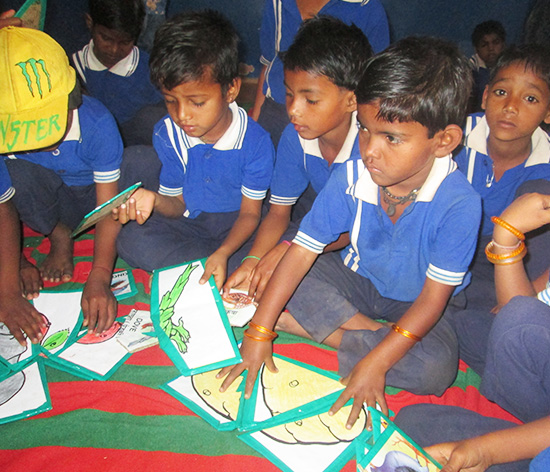
Brick kilns, the second largest non-farm employer in India, are also known for poor living and working conditions, as well as rudimentary access to health and social services for their workers, who are usually migrants.
Lack of healthcare services severely affects pregnant women and newborns, when two-third of the year is spent away from their villages in the brick kilns. Few brick kiln owners do try to support their workers and provide them with guidance about government benefits; however, it has limited reach and benefits. Poor education facilities for young children also aggravate the situation for migrant workers and their families. Fortunately, most brick kilns are usually clustered close together. The solution was to set up centres, which could provide day care, health services, meals and so on to young mothers, infants and children. However, brick kiln owners are at times apprehensive about the involvement of non-profit organisations to address these concerns. Therefore, getting an entry into the site itself posed a major challenge. However, through numerous in-person engagements and sensitisation workshops, the Trusts’ support team was able to overcome the barrier. And eventually, two centres called ‘Udaan Kendras’ were established in the Sri Ganganagar district of Rajasthan. There was an inaugural ceremony to mark the opening of the Udaan Kendra (centre), which was covered by the local media. The media coverage went a long way in positively influencing other brick kiln owners to allow entry to NGOs and encouraged them to support the setting up of Udaan centres for the betterment of the brick kiln workers.
At the Udaan Kendra, a specially-designed parent engagement module was used for sensitising workers on pre-schooling, child care and continuing education. The engagement with migrant brick workers involved driving their interest to understand the importance of pre-schooling in the overall development of their child and pre-natal care for pregnant women. The centres offered enrolment for pregnant women to avail benefits from government schemes, and workers’ children to attend the pre-school at the Udaan centre. Chotelal too enrolled his 5-year-old daughter, Kalta. Later, other parents also began to enrol their out-of-school children with government schools.
Chotelal, from Banda, Uttar Pradesh, has been migrating to Rajasthan for a period of 7 to 8 months along with his wife and children over the last 5 years. His children have spent most days either playing or helping both parents at laying bricks in a hazardous, dusty environment.
Chotelal narrates, “I am the father of a 5-year-old daughter, Kalta. She has spent almost all her life soiling her hands. I got to know of the Udaan Kendra and enrolled her. She is excited to go there and her daily habits and hygiene have significantly improved.”
Today, children like Kalta enjoy shelter, have improved their learning levels and show signs of significantly reduced malnourishment. Further, pregnant women at brick kilns are, for the first time, experiencing access to pre-natal care and institutional deliveries as well as immunisation for their newborns. Child labour, too, is dropping.
The positive results of the intervention resulted in a formal convergence with the Health and Integrated Child Development Services departments. More and more migrant families can now lead a better life, together.
This story has been taken from the Tata Trusts Annual Report 2019-2020
